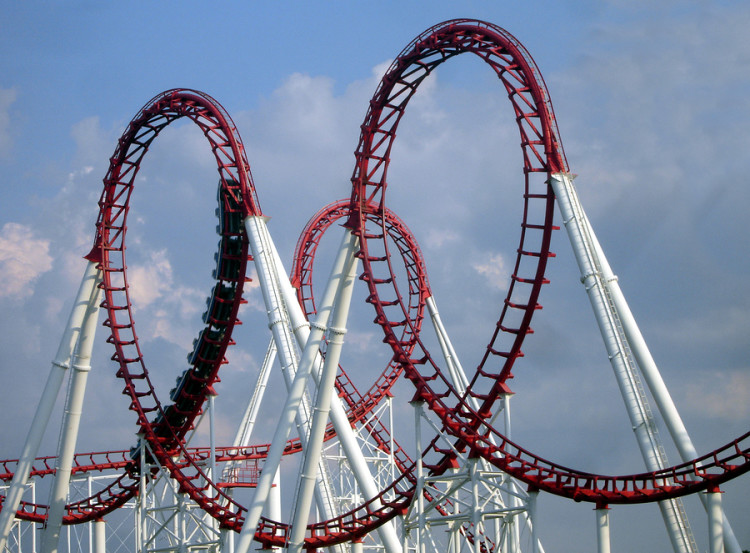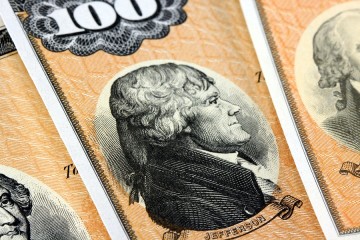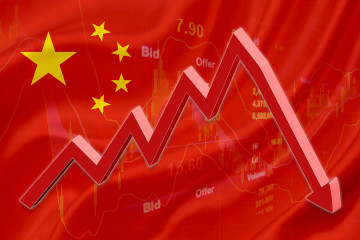Whichever Way You Slice It, These Are Wild Days for Asia Stocks

©2016 Bloomberg News
O1MW996JIJW1
(Bloomberg) — It’s been three years since Asian stock investors faced volatility this severe.
The MSCI Asia Pacific Index has moved up or down more than 1 percent for six straight days, the longest stretch since equities were rocked by the European debt crisis in June 2012. On an intraday level it’s even more dramatic: The market is swinging an average of 2 percentage points each day, measured from the lows to the highs, twice the rate for all of last year.
“Everything is jittery,” said Mikey Hsia, a trader at Sunrise Brokers LLP in Hong Kong. “Markets continue to trade in hours, given the situation that no one really knows what’s going on.”
Investors have endured a wild ride as oil prices have plunged with global equities amid escalating concerns over economic growth. Shares from Tokyo to Shanghai have entered bear markets, while the MSCI Asia Pacific gauge has fallen 9.2 percent this year to touch a 3 1/2 year low.
Traders have been searching for signs of a bottom. The benchmark gauge jumped 4.7 percent Friday and Monday amid optimism over central bank stimulus, then dropped 1.7 percent as oil prices slid. Stocks rallied again on Wednesday, almost wiping out Tuesday’s losses.
Whipsaw Pattern
The alternating rallies and selloffs have created a whipsaw pattern in which stocks have crossed between gains and losses on 15 of this year’s 18 sessions. The average 2 percentage-point daily swing compares with 1 point in 2015, which included the Asian market’s slide from May through September as concern grew over China’s yuan devaluation and the Federal Reserve’s first interest-rate increase in nearly a decade.
The Shanghai Composite Index offered a lesson in patience on Wednesday. It began the day higher, fluctuated and then fell as a report showed industrial profits weakened last month. The index touched a 13-month low by early afternoon, sinking 4.1 percent, before retracing all its losses within an hour and a half. It finished down 0.5 percent.
Volatility measures for Japan and Hong Kong have soared. The Nikkei Stock Average Volatility Index has jumped 96 percent in January, heading for its steepest increase since October 2008. A similar gauge for Hong Kong’s Hang Seng Index is up 74 percent, its biggest gain in nine months. Both indexes are below four-year highs reached during last year’s selloff.
The turbulence in Asia is echoed worldwide, with volatility and correlation shooting up in stocks. The Standard & Poor’s 500 Index has moved 1.3 percent a day this year, compared with an average daily fluctuation of 0.6 percent in the last three years.
“We’re seeing high levels of volatility not just in Asia but across the globe,” Yutaka Miura, a technical analyst at Mizuho Securities Co. in Tokyo, said by phone. “The fall in oil price is triggering risk-off sentiment.”
Oil has been a catalyst for moves both up and down as investors weigh the impact of lower commodity prices on financial markets and the economy worldwide. A measure of the correlation between global stocks and oil prices over the past 120 days climbed to the highest level since 2013 this week.
“This turbulence will continue for a little bit,” Jean- Louis Nakamura, Hong Kong-based chief investment officer for asset allocation at Lombard Odier Investment Managers, said in Singapore. “Any gains in oil prices won’t be sustainable given the huge gap between supply and demand. Growth in China will continue to slow down as the economy transitions. The biggest risk for the market is a policy mistake.”
–With assistance from Yuji Nakamura, Yuko Takeo, Nao Sano and Jonathan Burgos.
To contact the reporters on this story: Jeff Sutherland in Tokyo at jsutherlan13@bloomberg.net; Anna Kitanaka in Tokyo at akitanaka@bloomberg.net To contact the editors responsible for this story: Jeff Sutherland at jsutherlan13@bloomberg.net Sarah McDonald







No Comment